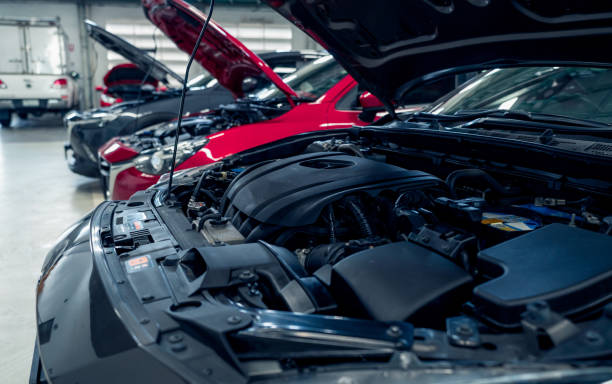
Proper brake maintenance is crucial for the safety and performance of your vehicle. Regular maintenance ensures that your brakes function effectively and helps prevent potential issues down the road. Here are some top brake maintenance tips to keep in mind:
- Listen for warning signs: Pay attention to any unusual noises coming from your brakes. Squealing, grinding, or screeching sounds could indicate worn brake pads or other issues. Address these warning signs promptly.
- Check brake fluid levels: Brake fluid plays a vital role in the braking system by transferring force from the brake pedal to the brakes. Ensure that the brake fluid level is within the recommended range. If it’s low, add the appropriate type of brake fluid as specified in your vehicle’s manual.
- Inspect brake pads and shoes: Regularly inspect the brake pads and shoes for wear. Worn brake pads can reduce braking efficiency and cause damage to other components. If the pads appear thin or worn, it’s time to replace them.
- Monitor brake rotor or drum wear: The brake rotors or drums should be inspected for signs of wear, such as scoring or grooving. Excessive wear can affect braking performance and may require resurfacing or replacement.
- Maintain proper tire pressure: Adequate tire pressure is essential for optimal braking performance. Underinflated tires can increase braking distance and put additional strain on the brake system. Regularly check and maintain the recommended tire pressure.
- Avoid excessive braking: Try to avoid sudden or excessive braking whenever possible. Frequent hard braking can wear out brake pads faster and increase the chances of brake fade or overheating.
- Be mindful of brake overheating: Continuous braking, such as when driving downhill for an extended period, can cause brakes to overheat. Overheated brakes may lead to decreased braking power or even brake failure. Use lower gears or engine braking techniques to help control speed and reduce strain on the brakes.
- Schedule regular brake inspections: Consider having your brakes inspected by a professional mechanic as part of your routine maintenance schedule. They can assess the condition of your brake system, identify any potential issues, and recommend necessary repairs or replacements.
- Follow recommended maintenance intervals: Adhere to the manufacturer’s recommended maintenance intervals for your vehicle’s brakes. This includes replacing brake pads, resurfacing or replacing rotors, and flushing brake fluid as per the recommended schedule.
- Seek professional assistance: If you’re uncertain about any aspect of brake maintenance or if you notice persistent issues, it’s best to consult a certified mechanic. They have the expertise and specialized tools to diagnose and repair brake-related problems.
Remember, maintaining your brakes is essential for your safety and the safety of others on the road. By following these tips and staying proactive with brake maintenance, you can ensure that your vehicle’s braking system operates optimally and provides reliable stopping power when needed.